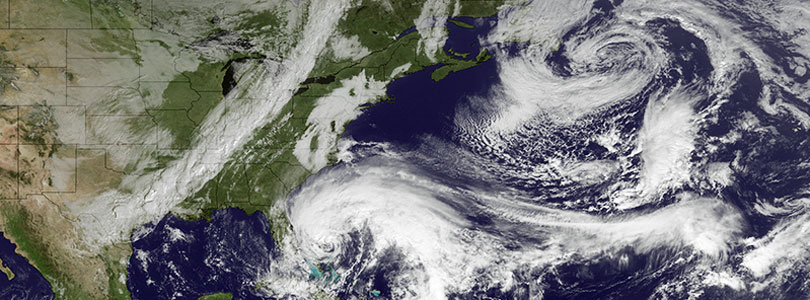During Hurricane Sandy, Rhode Island Vendors Should Watch Their Prices
With the declaration of emergency for Rhode Island, Hurricane Sandy becomes the first instance in which a new law, passed by the Rhode Island General Assembly and signed by the governor this spring, goes into effect. H7409 (also S2606) outlaws price gouging during an emergency. In the heat of the experience, the adrenaline of survival pushes the consequences of public policy even farther out of the public consciousness than its usual peripheral place. Still, as we hunker down — with school canceled and government offices closed well in advance of the looming weather — interest in the storm creates an opportunity for education and debate.
Specifically, the prices charged for “any goods, services, materials, merchandise, supplies, equipment, resources, or other article of commerce, [including] without limitation, home heating fuels, motor fuels, food, water, ice, chemicals, petroleum products and lumber necessary for consumption or use as a direct result of the market emergency” cannot represent “a gross disparity between the average prices at which the same or similar commodity was readily available and sold or offered for sale within the local trade area in the usual course of business during the thirty (30) days immediately before the declaration of the market emergency.”
If a government agency (which gets to keep the penalties and forfeited profits upon conviction) determines that a business is charging a higher price during an emergency, the business will have to prove that the increase was imposed by its supplier. Beyond paying for the cost of the prosecution and giving up the additional profits, the business will face fines up to $25,000 per day of violation.
The RI Center for Freedom & Prosperity weighted this legislation at a -1 on its General Assembly Freedom Index, with the only positive marks in the entire legislature going to Representatives Doreen Costa (R, Exeter, North Kingstown), Daniel Gordon (R, Little Compton, Portsmouth, Tiverton), Brian Newberry (R, Burrillville, North Smithfield), and Robert Watson (R, East Greenwich, West Greenwich).
The reasons for the negative weighting are political and economic. On the first count, the potential for abuse is significant. Whenever a state of emergency is declared (even if no disaster ultimately occurs), the government has financial incentive to seek out prices that appear to be high and to investigate and to prosecute. Over time, the practice could become increasingly pervasive.
More importantly, such laws fail to take into account the role of prices in a market economy. In a system that uses cash to value goods and services, the price isn’t an arbitrary fee invented by the seller. Other businesses could easily undercut such impositions. (This is in stark contrast, obviously, to the manner in which governments set their fees, fines, and taxes.)
Higher prices do two things that are arguably more important during an emergency: They force consumers to ration the goods among themselves, and they create incentive to increase supply. If the price of milk doubles during an emergency, only those who truly need milk will buy it; those who think it might be nice to have an extra gallon on hand might decide not to empty the store shelves.
And businesses that sell milk will be able to tolerate greater costs for providing it to the affected population; it may cost more for a Vermont dairy to get milk to Rhode Island than to upstate New York, but if the owners can gain an additional profit by shipping it during an emergency, they will. A Boston shipper with refrigerated trucks might determine that it’s better to take a break from transporting caviar to Toronto and instead move ice and other perishable necessities to Providence.
This legislation contrasts interestingly with a bill that passed the RI House but never made it to the floor of the state Senate, H7395 (which received a +1 weighting on the index). Rather than restricting economic activity, this bill would have relaxed government regulation and taxation for out-of-state companies doing business in Rhode Island expressly to aid with a disaster.
Basically, if the Rhode Island government or a business within the state requests the assistance of an out-of-state organization, it won’t have to register as a normal business would. The law would arguably be better (at least more fair) if it exempted local competitors from the same taxes and fees; that way, there would be no perverse incentive to seek out-of-state help as a first resort, and the recovery would be even faster and less economically painful.
But the two pieces of legislation illustrate different approaches to relieving hardship during an emergency, and it’s very telling which one actually became law. Government agents are often willing to impose restrictions on private activity, even when doing so disrupts the proper functioning of the market. They are less willing temporarily to give up their own control and revenue for the same noble purposes.



